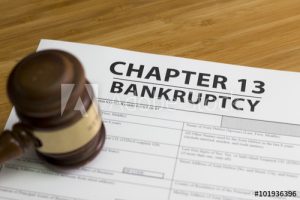Older Americans Increasingly Facing Bankruptcy: No Shortage of Causes
Category: Financial and taxes in retirement
August 7, 2018 — Since 1991 older Americans have experienced a three-fold increase in the rate they file for bankruptcy. From February 2013 to November 2016, there were 3.6 bankruptcy filers per 1,000 people 65 to 74; that rate was only 1.2 in 1991. Today one in seven bankruptcy filers is of retirement age, 65 years or over.
Causes
The problem is that there are so many causes, and many times it is a combination of problems that sinks the ship. Leading the list of causes is increased spending on medical care. As we age it gets worse: while folks 65-74 spend 34% of their Social Security income on medical expenses alone, that rate goes to 74% among those over 85.
There is no shortage of other contributors to the exploding rate of older people experiencing bankruptcy. A significant percentage of the population has almost no liquid assets. According to the Employee Benefit Research Institute, the median 65+ household had liquid savings of only $60,600 in 2016. The bottom part of the distribution had a lot less than that, so all it takes is one emergency to send these people into bankruptcy.
Fixed pensions are increasingly a thing of the past. Divorce, death or poor health, and unemployment are other reasons why older boomers have to declare bankruptcy. Having to take care of an adult child or elderly parent is yet one more reason why people experience financial distress.

Full report
The full report, using data from the Consumer Bankruptcy Project,
“Graying of U.S. Bankruptcy: Fallout from Life in a Risk Society” by Deborah Thorne, Pamela Foohey, Robert M. Lawless, and Katherine Porter finds that older Americans are struggling with increased financial risks, namely inadequate income and unmanageable costs of healthcare, related to reductions to their social safety net. The authors conclude that … “as a result of these increased financial burdens, the median senior bankruptcy filer enters bankruptcy with negative wealth of $17,390 as compared to more than $250,000 for their non-bankrupt peers.”
What can you do
Sometimes bankruptcy is the only way out of a bad situation. If that is the case, hire a good lawyer to help, who might be able to suggest steps you can take just short of declaring. Along the way you can try to reduce expenses, work longer, or rethink your support of family members.
For further reading:
Too Little Too Late: Bankruptcies Soaring Among Older Americans
Comments? Have you ever had to declare bankruptcy? If so, tell us what steps you took and how it worked out for you.






Comments on "Older Americans Increasingly Facing Bankruptcy: No Shortage of Causes"
Jennifer says:
I would be willing to bet that the elderly filing for bankruptcy by large do NOT have pensions. It seems those lucky enough to have a traditional pension have fewer money issues. I am in Washington, DC and many of the Federal employees have a pension and did not have to save huge amounts on their own. Add Social security to the mix and most of them are set. As life is, not everyone was or is able to save money in large amounts for the future no matter how hard they try. A well funded company or governemnt pension offers a good deal of securityand no matter how small it will be there. When companies have been allowed to underfund or not even offer a pension, it hurt a lot of people.
Elaine C. says:
Jennifer, my understanding, based on a couple of family members who worked for the Federal government, is that they paid into a plan that provided them with a pension after retirement; however, they did not pay into Social Security and therefore did not get both. They were not allowed by law to pay into Social Security as they were paying into the Federal system pension plan. This was my mother's situation. She got her government pension, but no Social Security.
JoannL says:
This was true for my father too. He was a Federal employee for 20 years and collected a Federal pension but no social security.
Louise Wyant says:
There are a lot of people young and old that are their own worst enemies when it comes to saving money. We all know people who don't bring lunch to work and spend money in vending machines or eat lunch out every day. People who have to wear the latest fashions, buy a new car every two years, buy houses they can't really afford, go on expensive vacations every year, send their kid to private school and finance college for their kids. People who eat dinner in fine restaurants and go to movies every week, buy the latest electronic gizmo's, buy so many Christmas gifts that could fill a room.
Some of these people have 401k's at work and refuse to put any money into it even when the employer will give them free money to match the minimum contribution.
Yes, it is hard to save money but people do it ever day buy cutting back or cutting out frivilous things out of their lives.
Schools should teach kids at a young age the benefits of saving money so when they become adults it is ingrained into them.
LS says:
Regarding Federal pensions, it is true that most Federal employees under the old Civil Service Retirement System (CSRS) did not pay into Social Security because their pension system predates the Social Security law. Thus, they were not eligible for Social Security benefits based on their Federal service under CSRS. If they had other employment that was covered by Social Security contributions, they could be eligible for a CSRS pension and reduced Social Security beneifts.
In 1983, Congress made contributions to Social Security mandatory for all new Federal employees and for those not yet vested in the CSRS system. A new Federal pension system started in 1987, the Federal Employee Retirement System (FERS). This system included mandatory contributions to Social Security and to the FERS pension. For employees under FERS, they receive a smaller pension than those CSRS because they contributed much less and they also receive Social Security credits based on their service under the FERS system.
Chris J says:
I am a recent retiree in Texas after 30 years in education. In our state we pay into our state pension plan (about 7% of our gross salary), but are also required to pay into the Medicare system. When congress passed their mandatory laws, it closed the door on educators being able to draw a pension and collect any SS benefits. This was painful to some as they had previously worked outside education and had their 40 quarters. In Texas when you retire your pension is based on a formula averaging your 5 highest paid years and then a percentage is paid of that salary based on how many years you worked in the system. While we were not spending lots on fancy fluff, it did provide peace of mind as we aged that we would have a guaranteed income in retirement. Given Texas’ tax rate and the low cost of housing, it is a good place to retire. As our last child heads off to college we are getting ready to sell the house in suburban Houston and move to a lake house. I have an elderly father who never saved a dime and worked his while life. His golden years have been a fiasco and quality of life has been poor. Our parents thinking that Social Security was a pension system found out that was very wrong.
On a final note, we did teach financial literacy to our students at the high school where I was Principal. Everything from determining interest on a loan to how much would be paid in taxes. While we stressed saving, getting a 17 year old to think about retirement really isn’t realistic, but we tried. Finally, I think putting employees in charge of their retirement IRAs has been a bad decision. Too many aren’t putting enough away as they focus on today. It is creating a society where seniors must work their entire lives. I can tell you that isn’t the case for me and my wife!
Jennifer says:
LS--You are correct. I do not know too many people who are covered under the old federal retirement plan. My generation would have been subject to the newer one (1983 forward)and thus all the people I know are under that system and not the old one. They get social security and a pension. I do know that they feel the newer pension is much less generous. Still it is a pension and they will have it with SS until they die.
Louse Wyant- there are spendthrifts all around us. No doubt about it. I was not necessairily referring to them, but obviously most people are not saving enoungh if they did the latest reports would reflect those numbers. Not all of them are spendthrifts. Few people are financial wizards and investors on their own. People can cut back only so much and lower wage earners have made less and have less to save. A pension for them would be a great help. SS was only intended to be a part of the retirement money available to retirees and now it seems to be the whole pie.
Louise says:
Not all pensions are helpful either. I worked in a factory for 10 years. One day they called us all in and told us the factory was closing down and we would all be laid off. I had a pension but what a joke that was! About 5 years after I was laid off I looked thru some paperwork I was given and contacted the headquarters and asked about my glorious pension. I had a grand total of just under $5,000! I could have waited till I was retired to draw on this. I forget what the monthly amount was but it was tiny. So I asked if I could take the cash. They said I could because it was under $5,000. If it had been over $5,000 they wouldn't give me the money. I took the check and invested it. That pension would not have helped me out at all. Not to mention if the company went bankrupt, I probably wouldn't have gotten anything.
Some people don't understand SS at all. That it's just a suppliment, not supposed to be your entire income once retired. What makes matters even worse is when you are eligible for Medicare and you need to have Part B, Prescription plan and a Medicare supplement. Not cheap at all.
Plenty of people who work in low wage jobs are offered savings plans. Even Walmart has a 401k plan where they match the minimum investment. Other low wage places offer 401k plans too like Target, Kohl's, Starbucks, Sears, J. C. Penney, Bed Bath & Beyond. Yes, not easy to save when you are making low wages, but baby steps.
Jennifer Lee says:
Louise, there are exceptions, but I am talking about those lucky people who have a reliable pension--not underfunded ones--those people would be in the same boat as the rest or those without a pension at all. Bankrupt companies and even some local governments (think Detroit ) have pulled the pensions of their employees.
I was referring to those who get a check each month until they die--they are the lucky ones and thus less likely to become bankrupt. It is understood that SS was never meant to be the only source of income in retirement, but when SS was created pensions were common in the workplace. It was not foreseen that pensions would be dissolved or deemed insolvent and people died earlier. Even so, some jobs are physically demanding and even though the human body is now living longer--it still gets tired and people do wear out. The job market is also discriminating against older workers which makes it harder to keep working and contributing to SS and pensions.
Sue B says:
Both my husband and I have RRPensions and I also have one from the state. Thank God we were union workers.!
Chris J says:
I agree that their are some entities that sold their workers a bills of goods regarding pensions. In my case I made contributions that totaled almost 300k by the time I retired. Now I am able to receive monthly payouts that, given I live a long, full life, will more than exceed the amount paid in. That being said, we also contrived to 403B accounts and have substantial equity in or home. Bottom line is that planning for the future begins well in advance.
The real culprit, in my opinion, for challenges for many more seniors is the skyrocketing cost of healthcare. Given the fact that seniors that have even one serious illness, can burn through savings is a scary reality for almost everyone now. Healthcare plans across the country continue to raise premiums and cut benefits. It is our plan to use one of our 403B accounts to be our emergency fund for ONLY health related costs. Something all of us need to think about. Medicare and supplemental will only get more expensive over time.